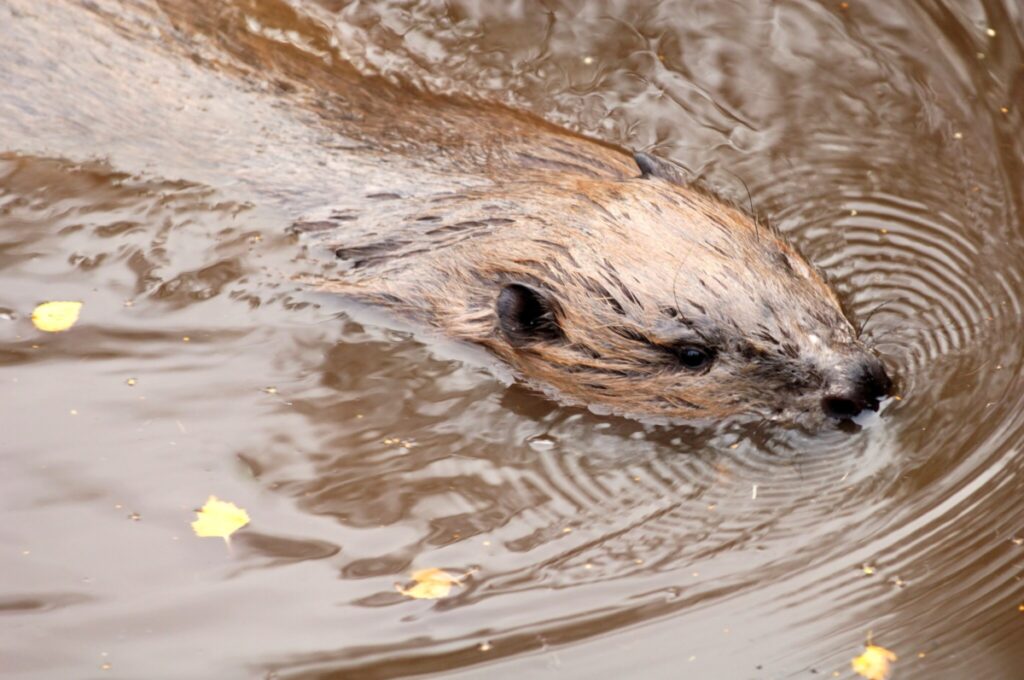SCOTTISH beavers were trapped and moved at an increased level in the country last year, according to a new report on beaver management.
This comes as the beaver population continues to expand rapidly – with a total of 45 animals trapped and moved to licenced projects, compared with 33 in the previous year.
The 2022 figures show a reduction in the number of beavers removed under licence from conflict areas in Tayside to prevent agriculture damage – down from 120 in 2021 to 108.

Of these, 15 were released to the wild in Scotland. The proportion of beavers that were trapped and translocated was therefore 42% in 2022, an increase from 28% in 2021.
A total of 63 beavers were killed under licence, a significant decrease from 87 in 2021. In addition, 108 dams were removed under licence.
This increase in trapping and translocation partly reflects the change in Scottish Government policy to support expansion of the population across Scotland.
This came into effect last summer, alongside increased efforts to promote trapping with land managers as a successful alternative to lethal control, and continued interest from licenced release projects in England.
A NatureScot beaver team stepped up to work with land managers to mitigate beaver impacts where required, helping more people to live alongside these ecosystem engineers.
This included 24 new mitigation cases in 2022.
The report highlights that the beaver population in Scotland is expanding rapidly, with an estimated 424 beaver territories currently, or more than 1,500 individuals.
If this trajectory continues, it is expected that there could be as many as 10,000 beavers in Scotland by 2030, with populations restored to more areas.
This would play an important role in helping to improve biodiversity and respond to the climate emergency in Scotland.
Biodiversity Minister Lorna Slater said: “It is welcome news to see the increase in the proportion of beavers being translocated and that numbers in Scotland are increasing, but more work is required.
“It is vital that we continue to protect and value these iconic animals.
“The report indicates that not only are beaver population numbers increasing at a healthy rate, but that alternative forms of management are being actively used by land managers to reduce their impact.
“This is a direct result of our commitment to promote the expansion of beavers to all parts of Scotland.
“Beavers help re-engineer and restore rivers and can create wetlands.
“Their introduction is a vital part of our wider commitment to protect and restore Scotland’s natural environment.”
Donald Fraser, NatureScot’s Head of Wildlife Management, said: “We’re pleased to report a significant increase in trapping last year, with NatureScot staff working hard with land managers, the Beaver Trust and the Five Sisters Zoo to enable this wherever possible.
“As this work continues, we expect to see a further shift away from lethal control.
“Alongside this, a huge amount of effort has also been going on behind the scenes to put in place the support and resources to enable others to take forward well-considered translocations in Scotland.
“The release of beavers at a new site at Loch Lomond earlier this year marked a significant milestone in the restoration of the species, with two other proposals for the River Spey and Glen Affric / Beauly areas currently being explored.
“NatureScot has carried out environmental assessments of these catchments, and we are now inviting views on these.
“This will ensure we fully understand the likely effect of beaver translocations.”
The past 12 months have also seen the publication of Scotland’s Beaver Strategy, which brought together more than 50 organisations and individuals with an interest in beaver restoration and management, to set out a vision for 2045.

